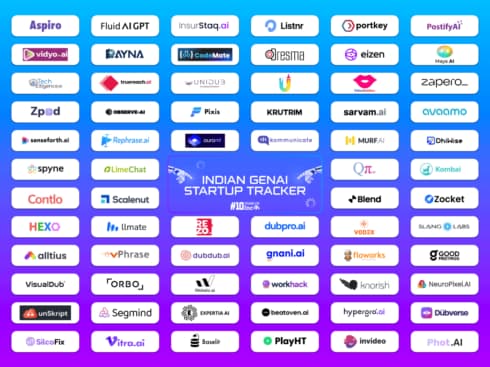Cure.fit's offerings range from physical training, healthy food deliveries, mental wellness and more
Cofounder Ankit Nagori attributed its success to the omnichannel and design-oriented approach
Cure.fit recently entered the grocery and packaged foods delivery segment with Whole.fit
UpNext
Every week, we bring in-depth stories of Indian Soonicorns that are about to enter the much-celebrated Unicorn Club. The series showcases their scaling up & growth journeys, learnings, challenges and how they are going about the future as they enter the unicorn club.
To celebrate India’s rising startups, Inc42 is profiling a new soonicorn every Friday in the Inc42 UpNext: Unicorns Of Tomorrow series. For the next few months, we will be speaking to founders and cofounders at these potential unicorns and shining light on their journeys and growth stories. This time, we take a look at health and fitness startup Cure.fit.
Every body type is different and thus, every fitness journey is also different. But then how does one build a scalable solution to this? Many health and fitness companies have attempted to achieve this by either introducing personal trainers, healthy food options, or customisable gym schedules.
And then there’s Cure.fit which is doing all these things and much more. More importantly, having an array of services (Cult.fit, Eat.fit, Mind.fit, Whole.fit and Care.fit) has only increased the customer’s engagement with Cure.fit. The company claims to have an NPS (Net Promoter Score) of 65, NPS is measured on a scale of -100 to +100; higher the score, higher the loyalty of a customer.
Technology Binds Cure.Fit’s Arms Together
How did they do it? Cofounder Ankit Nagori said “Experts and facilities are the two important pillars of our business. Hence, we constantly integrate technology into these aspects to provide a holistic healthcare offering.”
He added that identification of the right locations for the centres and setting up the team with the right set of trainers and centre managers is very crucial for the company. Technology is central to standardising training and monitoring processes and systems at Cure.fit.
Further, Cure.fit has also integrated fitness trackers such as Google Fit, sleep monitoring, and Fitbit into its mobile app. This allows the company to track the user’s active minutes, stress levels, and sleep. “If you start tracking these metrics, it becomes very easy to understand the trends. So, we know a lot of consumption patterns, what works and what not!” said Nagori.
The company’s flagship fitness centres Cult.fit also have a PULSE workouts option, which maps user heart rate to provide real-time workout-tracking, in-class competition, and a detailed workout report. The PULSE kit includes a wearable chest band and a heart rate monitor and is made compulsory for PULSE session attendees who have to pay an extra rental fee for the device.
Building An Ecosystem Of Fitness
Starting with its physical fitness and strength training product Cult.fit, the company has now expanded to include a variety of services that propagate healthy living including Eat.fit for nutritive and healthy food, Mind.fit for mental wellness, and Care.fit for primary healthcare.
In addition to this, the Cure.fit app also sells athletic clothing, footwear, and accessories under the brand name CULTSPORT. Earlier this month, the company also launched its grocery delivery vertical called Whole.fit.
Talking about the vision behind it, Nagori said, “The packaged food journey at Eat.fit started as an ‘attach category’ limited to product options and serving sizes which complemented the meals served. Categories like juice, yoghurt, and some baked snacks were the limited assortment the business started with.”
However, over the course of Eat.fit’s operations, the company felt the demand for a wider selection of packaged food products. This led to the launch of the Whole.fit, which has now established business collaborations with FMCG players such as RAW Pressery, Epigamia, and Bagrrys. Whole.fit now has exclusive co-branded products with these brands, serviceable all across Bengaluru city.Cure.fit is said to have more than half a million customer transactions every month and more than 50% of these subscribers are said to have used more than one Cure.fit product vertical.
Founded by Nagori and Mukesh Bansal in 2016, the company has 270 Cult.fit centres across 18 Indian cities offering boxing, strength and conditioning, HIIT, sports conditioning, dance fitness, HRX workout, PROWL workout, and yoga. Further, the count for Eat.fit stands at 70 kitchens across 15 cities along with eight Care.fit centres in India.
Nagori attributed the brand’s success to its omnichannel approach, urban Indian individuals-focussed bold and energetic designs, the group workout format, and complementary healthy and nutritious meals or accessible mental wellness sessions.

Expanding Horizons With A Focus On Brand Loyalty
Cure.fit has recently forayed into the international market with its first Cult.fit studio in Dubai, and plans to soon launch Mind.fit in the UAE market. The company also has plans to enter other regions including the Middle East, Southeast Asia, West Asia, Europe, and North America. The entry to South-East Asia has been planned for the end of 2020.
Nagori noted that Cure.fit plans to go deep in the cities where it is currently present, especially across Cult.fit and Eat.fit verticals and expand services for all the three verticals across 50 Indian cities with over 1000 centres in the next three years. While Care.fit will continue growing in Bengaluru, Cult gear is planned to expand nationally, along with Whole.fit entering all metro cities, he added.
Talking about the role company valuations play in building a brand image, Nagori said, “a customer is interested in their experience with the brand and not as much about the valuation of a company. We feel it does not play a crucial role in brand image.”
































 Ad-lite browsing experience
Ad-lite browsing experience